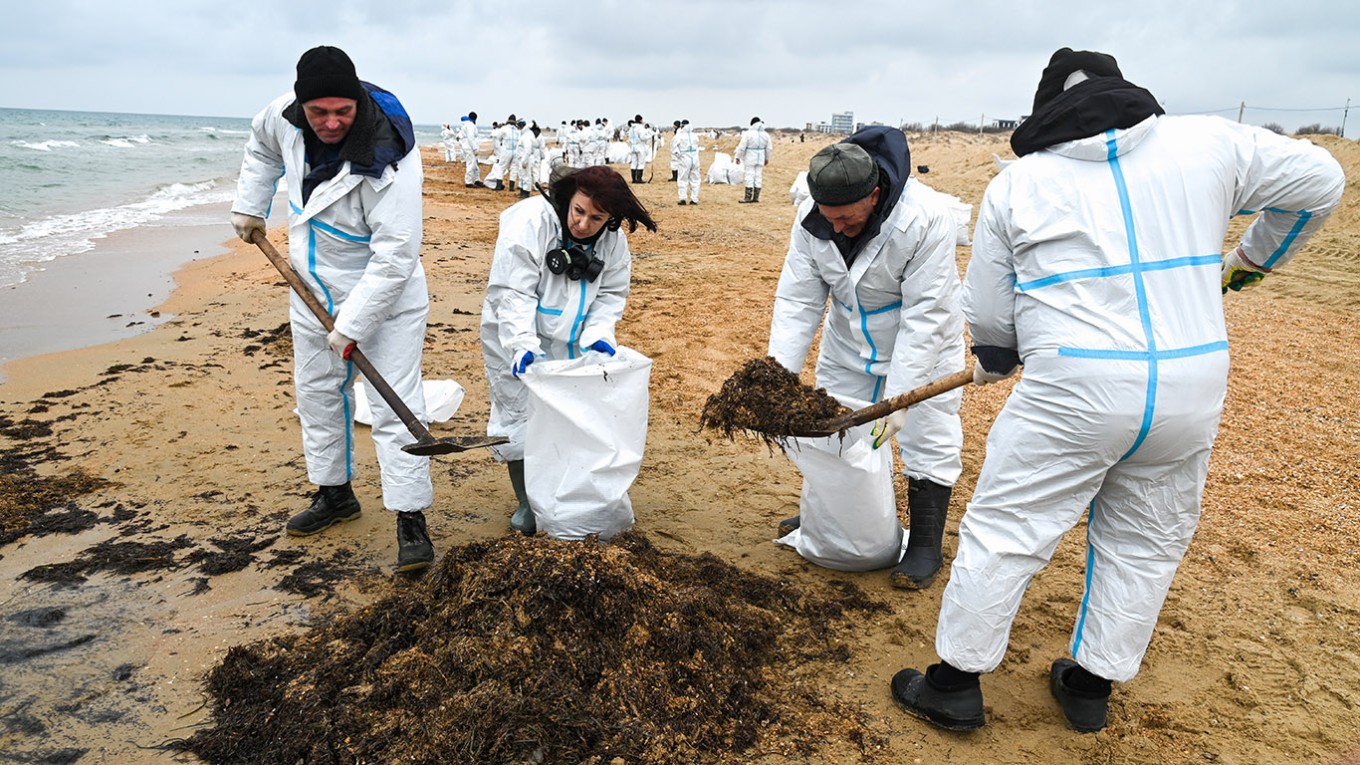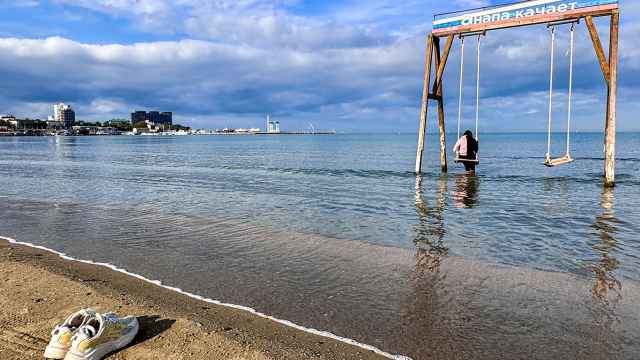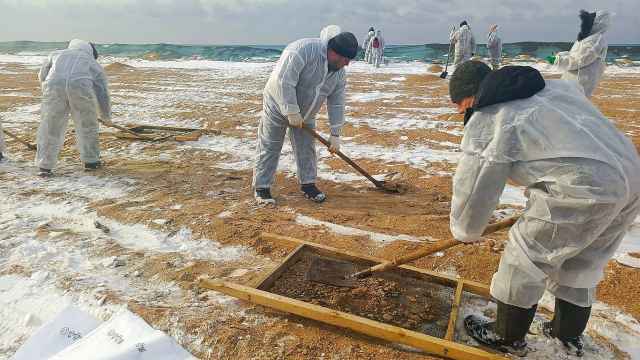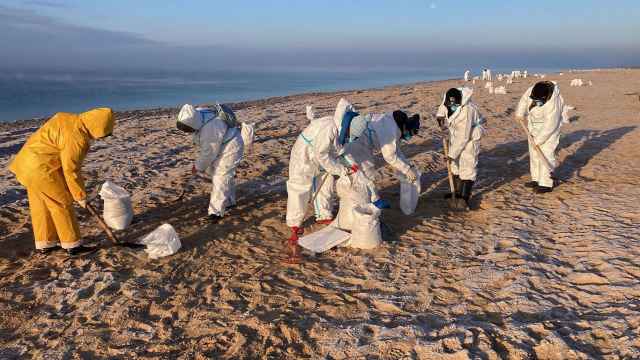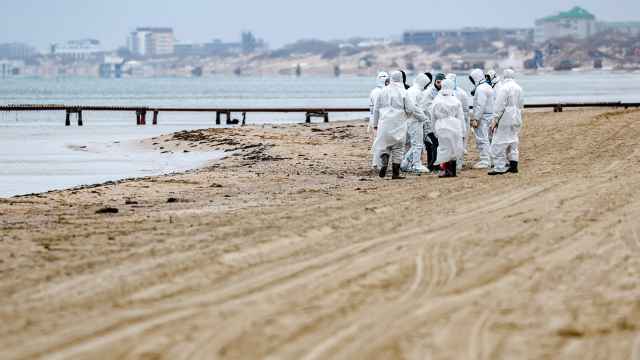Russian regional authorities are arranging summer vacations for disabled children at Black Sea resort destinations heavily impacted by last month’s oil spill, despite warnings from federal officials that the affected areas will not fully recover and be safe for tourists until 2026.
In the southern Volgograd region, local media reported that authorities spent at least 16 million rubles ($163,000) to send 160 orphans, disabled children and homeless children to the resort city of Anapa, which is bearing the brunt of the oil spill.
Plans for additional government contract bids suggest regional officials aim to spend up to 26 million rubles ($265,300) on similar trips for disabled children.
Across Russia, regional governments have spent over 300 million rubles ($3 million) on children’s vacations to Black Sea resorts in the two weeks following the oil spill, The Moscow Times’ Russian service reported last month.
Thousands of tons of heavy fuel oil began spilling into the Black Sea on Dec. 15 after two Russian tankers were damaged in a storm off the coast of the southern Krasnodar region. President Vladimir Putin and scientists alike have described it as one of the worst environmental disasters to hit Russia in recent decades.
Russia’s environmental watchdog Rosprirodnadzor said last week that it would file a lawsuit against those responsible for the spill but did not disclose which individuals or entities it plans to take to court. The two oil tankers were operated by Volgatransneft, while the heavy fuel oil on board the ships belonged to the state oil firm Rosneft
Volunteers have removed more than 170,000 metric tons of contaminated soil and sand from affected areas since the spill last month. However, Environment Minister Alexander Kozlov told Putin Friday that cleanup operations will not be completed until the summer of 2026.
A Message from The Moscow Times:
Dear readers,
We are facing unprecedented challenges. Russia's Prosecutor General's Office has designated The Moscow Times as an "undesirable" organization, criminalizing our work and putting our staff at risk of prosecution. This follows our earlier unjust labeling as a "foreign agent."
These actions are direct attempts to silence independent journalism in Russia. The authorities claim our work "discredits the decisions of the Russian leadership." We see things differently: we strive to provide accurate, unbiased reporting on Russia.
We, the journalists of The Moscow Times, refuse to be silenced. But to continue our work, we need your help.
Your support, no matter how small, makes a world of difference. If you can, please support us monthly starting from just $2. It's quick to set up, and every contribution makes a significant impact.
By supporting The Moscow Times, you're defending open, independent journalism in the face of repression. Thank you for standing with us.
Remind me later.


